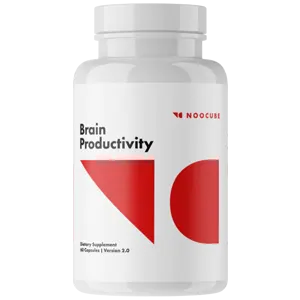What Vitamins Shouldn't Be Taken Together?
Understand which vitamins may conflict when taken together and how to time your supplements properly to maximize absorption and health benefits safely.
Advertiser Disclosure: We independently select all the products. If you click through links we provide, we may earn a commission.

Key Takeaways
- Some vitamins and minerals interfere with each other's absorption when taken together.
- Proper timing and spacing of supplements can optimize nutrient absorption.
- Avoid combining iron with calcium, magnesium, zinc, or high doses of Vitamin C and B12.
- Some vitamin-medication combinations, like Vitamin K with blood thinners, can pose serious risks.
- Taking supplements at different times improves their absorption and effectiveness.
- Vitamins like Vitamin D with calcium and iron with Vitamin C work better when paired together.
Why Vitamin Timing and Pairing Matter
Vitamins keep your body running smoothly and help you feel your best. Most people know they need these key nutrients for good health. But here's something many don't realize: not all vitamins play well together.
What vitamins shouldn't be taken together is a question more people should ask. Some vitamin pairs actually fight against each other in your body. They can block absorption or even cause unwanted side effects.
Taking the wrong combinations wastes your money and might hurt your health. Your body might only absorb half of what you swallow. Some pairs can make you feel sick or tired instead of healthy.
This guide helps you avoid common vitamin mistakes. You'll learn which combinations to skip and how to time your supplements better. A vitamin interaction chart approach makes this easy to understand and remember.
Smart vitamin absorption tips can double the benefits you get from your supplements. Small changes in timing and pairing make a huge difference in results.
Understanding Nutrient Absorption and Competition
Your digestive system works hard to pull nutrients from food and pills. But it can only handle so much at once. Think of it like a busy highway during rush hour.
How vitamins are absorbed happens mainly in your small intestine. Special carriers grab nutrients and move them into your bloodstream. But these carriers have limited space and energy.
Some nutrients use the same pathways to get absorbed. This creates vitamin competition inside your gut. When two nutrients want the same carrier, only one usually wins. The loser gets flushed out of your body unused.
Your body handles fat-soluble vitamins (A, D, E, K) differently than water-soluble ones (B vitamins, C). Fat-soluble vitamins need dietary fat to get absorbed properly. Water-soluble vitamins dissolve easily but leave your body quickly.
The bioavailability of supplements tells you how much your body actually uses. A pill might contain 100mg of a nutrient, but your body might only absorb 20mg. Poor combinations make this number even lower.
Understanding these basics helps you make smarter choices. You can avoid wasting money on supplements that cancel each other out.
Common Vitamin Combinations to Avoid
Some vitamin pairs create problems when taken at the same time. Here are the most important combinations to separate:
Iron and Calcium
These two minerals fight hard for the same absorption pathway. Calcium usually wins this battle, leaving iron behind. This means what not to take with vitamins includes pairing these two together.
Studies have shown that calcium can inhibit iron absorption. This is especially bad news for people with low iron levels. Women who lose iron during monthly cycles need to be extra careful.
Calcium, Magnesium, and Zinc Together
High doses of these three minerals create chaos in your digestive system. They all compete for similar absorption routes. Taking large amounts together means most get wasted.
This is one of the biggest vitamins that clash problems people face. Many bone health supplements contain all three, but your body can't use them effectively this way.
Our research led us to a video by @doctorjanine, where she strongly advises against taking magnesium with calcium and zinc.
Iron with Green Tea or Calcium-Rich Foods
Green tea contains compounds that grab onto iron and won't let go. Drinking tea with iron supplements blocks absorption significantly. The same thing happens with calcium-rich foods like dairy products.
These vitamin absorption problems are easy to fix with better timing. Just separate iron from tea and calcium by a few hours.
Vitamin C and B12 in Large Doses
Taking vitamin B-12 with vitamin C might reduce the available amount of vitamin B-12 in your body. This happens before your body gets a chance to absorb the B12. The problem gets worse with higher doses of both vitamins.
Zinc and Copper
Zinc blocks copper absorption when taken in large amounts. Long-term zinc supplementation without copper can lead to copper deficiency. This creates problems with iron absorption and nerve function.
High-Dose Vitamin A and E
These fat-soluble vitamins can interfere with each other when taken in very large amounts. They compete for absorption and storage in your body.
According to Dr. Michael Thompson, DCM
Supplementation is not just about what you take, but when and how you take it. Paying attention to nutrient timing and possible interactions helps ensure you get the full health benefits from your vitamins without interference.
Vitamins and Medications: When to Be Extra Cautious
Mixing vitamins with certain medications creates serious risks. Some combinations can make drugs work too well or not well enough.
Vitamin drug interactions happen more often than most people realize. Your doctor needs to know about every supplement you take. This isn't just being careful - it can save your life.
Vitamin K and blood thinners like warfarin create a dangerous combination. Vitamin K helps blood clot, while warfarin tries to prevent clots. Taking both can make the medication stop working properly.
Vitamins to avoid with medication include high-dose vitamin E with blood thinners. This combination can increase bleeding risk significantly. Even small cuts might bleed longer than normal.
Antibiotics and calcium don't mix well either. Calcium can bind to certain antibiotics and make them useless. Your infection might not clear up properly if you take them together.
Supplement safety tips always include talking to your pharmacist. They know which combinations cause problems. Many drug interactions happen because people forget to mention their vitamins.
Diuretics (water pills) and potassium supplements need careful monitoring. Too much potassium can cause heart rhythm problems. Your doctor needs to check your levels regularly.
Best Practices for Spacing Out Vitamins
Smart timing prevents most vitamin conflicts. You don't need to give up your supplements - just take them at different times of day.
How to space out vitamins starts with your morning routine. Take iron first thing when you wake up on an empty stomach. Wait at least two hours before taking calcium or drinking coffee.
Calcium works best when split into smaller doses throughout the day. Your body can only absorb about 500mg at once. Taking more than this wastes the extra amount.
Fat-soluble vitamins (A, D, E, K) need meals that contain healthy fats. Take these with breakfast if you eat eggs, nuts, or avocado. Evening meals with olive oil or fish also work well.
Here are simple supplement timing tips that work for most people:- Morning (empty stomach): Iron, zinc (if tolerated)
- Morning (with breakfast): Fat-soluble vitamins, B complex
- Afternoon: Calcium (first dose), magnesium
- Evening (with dinner): Calcium (second dose), vitamin D if it doesn't affect sleep
- Bedtime: Magnesium (if it helps you sleep)
Best time to take supplements varies by person, but consistency matters most. Pick times that fit your daily routine. Set phone reminders until the habit sticks.
Use a pill organizer or smartphone app to track your schedule. This prevents double-dosing and helps you remember which vitamins to separate.
When Combining Is Beneficial (Bonus Tip)
Not all vitamin combinations cause problems. Some nutrients actually help each other work better. These vitamin pairings can boost your health more than taking vitamins alone. Vitamins that work together include:
 When Combining Is Beneficial
When Combining Is Beneficial
Vitamin D and Calcium
Vitamin D helps your body absorb calcium from food and supplements, making both nutrients work more effectively when taken together. This powerful combination not only supports strong bones but is also commonly found in Cognitive Support supplements to help maintain brain health and overall wellness.
Iron and Vitamin C
Iron and vitamin C make a powerful team. Vitamin C changes iron into a form your body absorbs easily.
Magnesium and Vitamin B6
Magnesium and vitamin B6 support each other in many body processes. They work together to reduce stress and improve sleep. Many people find this combination helps with mood and energy.
Vitamin K2 and Vitamin D3
Best vitamin combinations also include vitamin K2 with vitamin D3. This pair helps calcium go to your bones instead of your arteries. It's becoming popular for bone and heart health.
Zinc and Vitamin A
Zinc and vitamin A support immune function together. They help your body fight off infections more effectively than either vitamin alone.
Folate and Vitamin B12
Folate and vitamin B12 work as a team to make healthy red blood cells. People with anemia often need both vitamins to feel better.
These helpful combinations show that timing and pairing matter in both directions. Some vitamins are enemies, while others are best friends.
FAQs
Conclusion
Taking vitamins helps fill gaps in your diet and supports good health. But how and when you take them makes a huge difference in results.
This smart supplement guide gives you the tools to avoid common mistakes. Simple timing changes can double or triple the benefits you get from your vitamins.
Separate iron and calcium by at least two hours. Take vitamins like A, D, E, and K with meals that include healthy fats. Avoid taking large doses of minerals like zinc and calcium together. Spread calcium throughout the day for better absorption. Always tell your doctor about the supplements you take, especially if you're on medication. With these simple tips, you can get the most out of your supplements without any confusion.
Vitamin intake optimization doesn't have to be complicated. Start with one or two timing changes and build from there. Perfect timing beats giving up on vitamins completely.
Your body works hard to use the nutrients you give it. Help it succeed by avoiding combinations that create unnecessary competition. Small changes in timing lead to big improvements in how you feel.
References
Flawless Bloom has strict sourcing policies and relies on primary sources such as medical organizations, academic institutions, governmental agencies, and peer-reviewed scientific journals. Read more about how we ensure our content is accurate, thorough, and unbiased by reading our editorial process.
- Calcium and iron absorption--mechanisms and public health relevance - PubMed https://pubmed.ncbi.nlm.nih.gov/21462112/
- Iron deficiency anemia due to excessive green tea drinking - PMC https://pmc.ncbi.nlm.nih.gov/articles/PMC5093162/
- Vitamin B-12 - Mayo Clinic https://www.mayoclinic.org/drugs-supplements-vitamin-b12/art-20363663
- Copper - Health Professional Fact Sheet https://ods.od.nih.gov/factsheets/Copper-HealthProfessional/
- Vitamin K - Health Professional Fact Sheet https://ods.od.nih.gov/factsheets/VitaminK-HealthProfessional/
- Calcium Supplements and Certain Medicines Should Be Taken a Few Hours Apart https://www.consumermedsafety.org/safety-articles/calcium-supplements-and-certain-medicines-should-be-taken-a-few-hours-apart
- Hyperkalemia (High Potassium): Symptoms & Treatment https://my.clevelandclinic.org/health/diseases/15184-hyperkalemia-high-blood-potassium




























